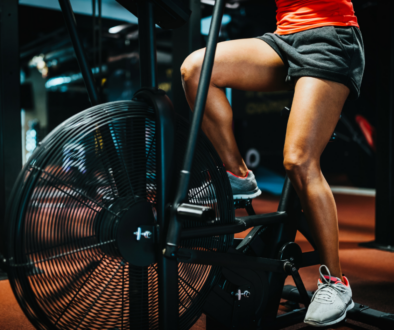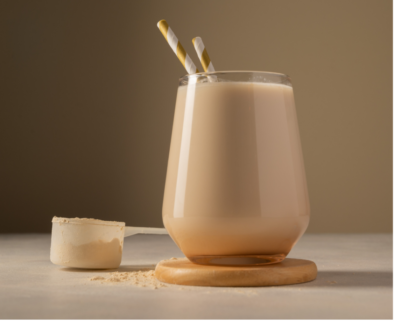The Truth About Protein Bars
 If you have fat-loss goals, you know you need more protein. But should you add protein bars to your daily nutrition routine?
If you have fat-loss goals, you know you need more protein. But should you add protein bars to your daily nutrition routine?
It’s best to get your protein from whole foods such as meat, eggs, greek yogurt, and plant-based sources. But that’s not always realistic. Which is why adding a daily protein supplement can help you reach your goals. A protein supplement means extra protein. ONLY protein. Not extra fat, carbs, and sugar.
If you’re eating a bar, you’re getting more than just protein. Check the labels: Bars that are “natural” will probably be high in fat (from nuts, nut butters, and seeds) and possibly sugar. If they’re low in sugar, they could contain sugar alcohols and those are rough on the digestive system.
The truth is, if your bar has more fat or carbs than protein, it’s not a protein supplement and it could be hurting your progress rather than helping.
I’m not saying don’t eat protein bars. Here’s where they could be helpful:
- Having a bar is better than skipping meals. If you’re on the run or find yourself so busy you miss meals, grab a bar.
- A bar can be a better alternative to something that doesn’t support your goals. If you’re used to a sweet treat with your coffee or at night, replace it with a high-protein bar.
Bottom line, check the label. Look for a full serving of protein (20-35g). And make sure you’re not eating a candy bar posing as a protein supplement.
I’m currently loving No Cow Bars. They’re low in sugar and have 20+grams of plant-based protein. These bars hit the spot when I want something sweet. And they’re easy to throw in my gym bag, lunch bag, beach bag, or purse when I know I’ll to be out and about or on the go for a few hours.
Related Posts:
8 Ways to Get More Plant-Based Protein
4 Reasons You Need a Post-Workout Meal for Fat-Loss
6 High-Protein, Low-Sugar Breakfast Ideas
As an Amazon associate, I earn on qualify purchases.



